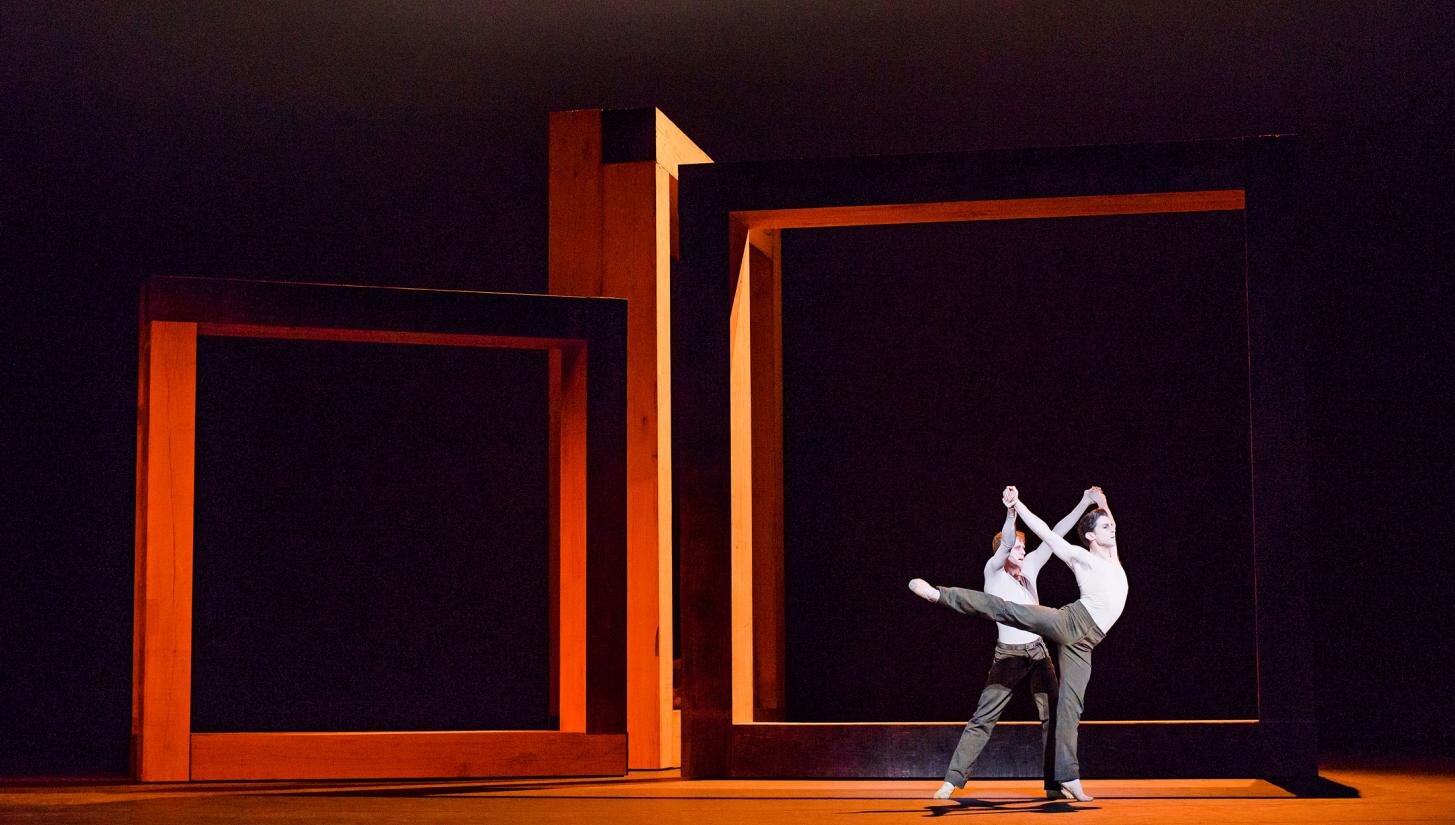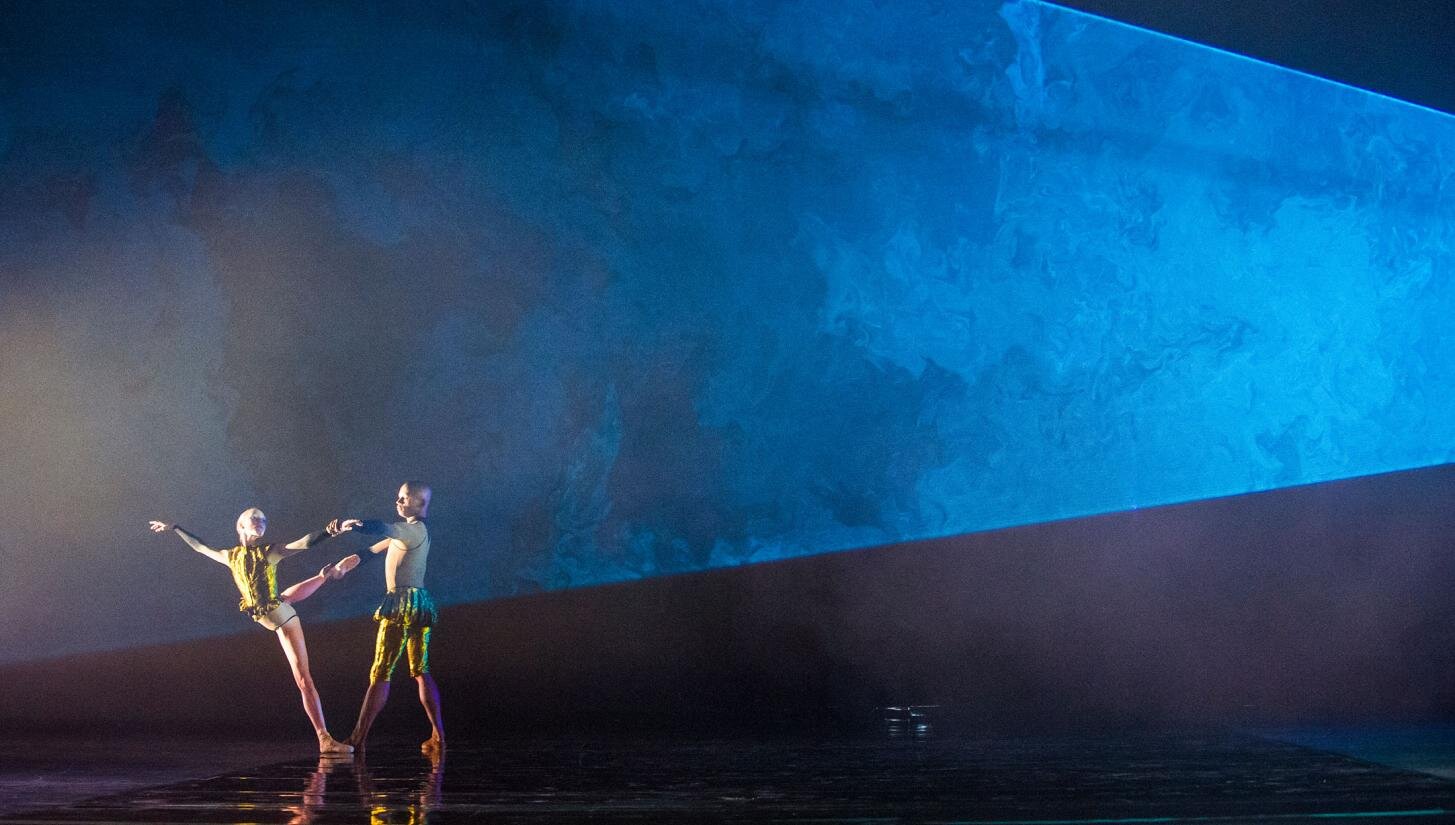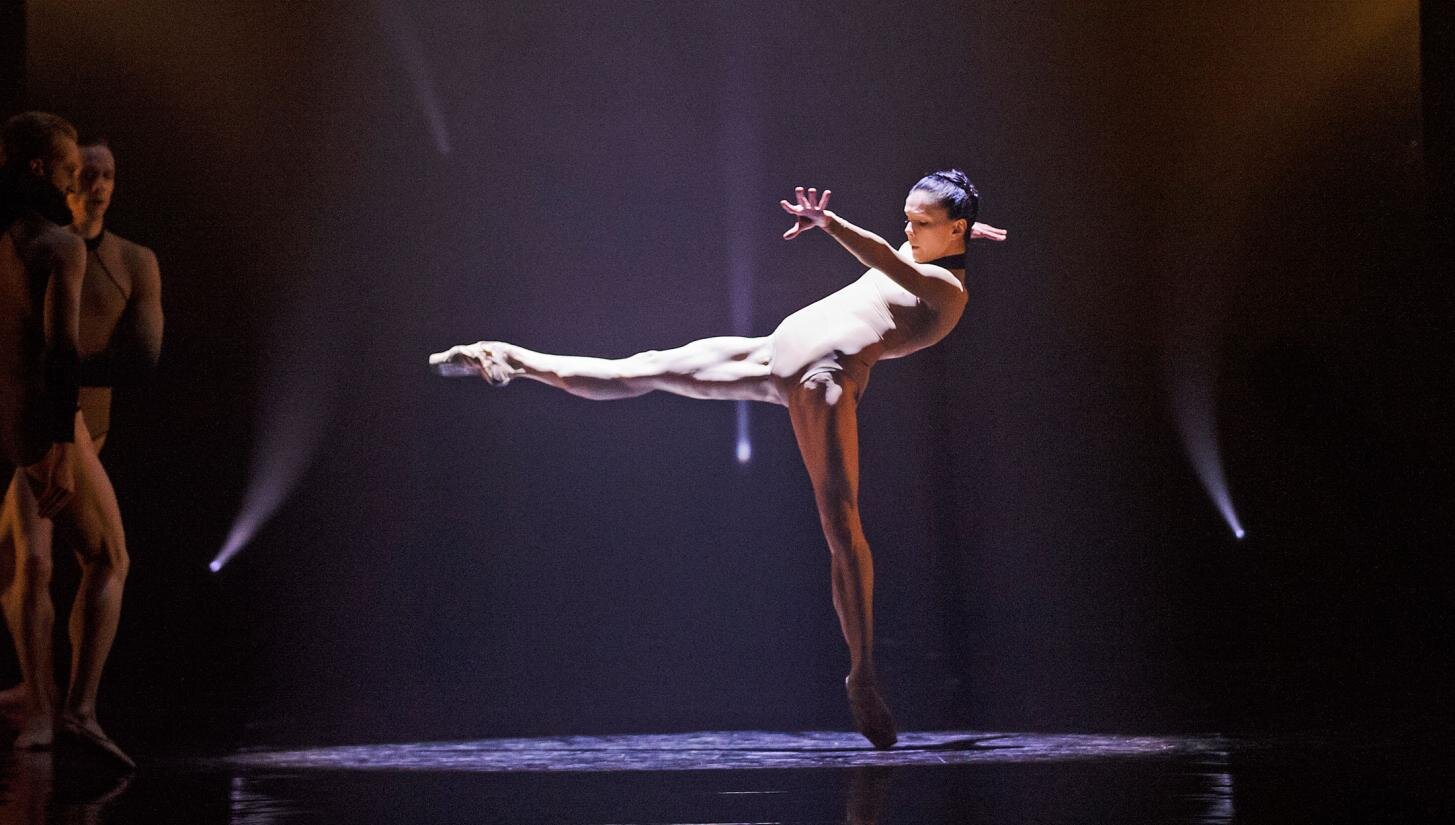Rute Costa on Woolf Works
Rute Costa explains why she considers Woolf Works to be a ballet worth watching again and again
‘[I]f one night next week you would ask me to […] go on to the Ballet I should be enchanted.’ (Virginia Woolf, letter to Clive Bell, 1919) [1]
In May 2015, as I was nearing the end of my first year studying English at university, Wayne McGregor’s first full-length ballet was premiering at London’s Royal Opera House. Woolf Works, inspired by three of Virginia Woolf’s most beloved novels (Mrs Dalloway, Orlando and The Waves) was a feat not short of brilliance and ambition. As a keen Woolfian and dance aficionada, I was ecstatic to see two of my biggest loves brought together on stage. As it turns out, so were other audiences, artists and critics. The success of the production led to prestigious awards – two Oliviers and two National Dance Awards – as well as a London reprisal in 2017. By this point, I had decided to write about Woolf Works for my final dissertation and saw it again twice, which felt like a gift from the literature gods. The ballet travelled further that year, being broadcast live in cinemas worldwide and later on BBC Four. Still hungry for Woolf in dance form, I got a close-up view at a Cambridge cinema, and then many times on iPlayer (being so close to the dancers at the Royal Opera House comes with a price a student cannot pay). In April 2019, Woolf Works had its Italian premiere at the renowned Teatro alla Scala in Milan, with prima ballerina assoluta Alessandra Ferri still in the title role.
What draws me to the ballet time and time again is not just its brilliant choreography brought to life by a symbiosis of exquisite performances, music and design – it is the ballet’s capacity to expand and illuminate our readings of Woolf’s novels. The sensory elements of her poetic-prose, as well as the variety of rhythms she experiments with, have a way of coming to life through dance. As the choreographer remarks:
The poetry was so analogous with dance to me… the rhythmic feeling of reading, the unfolding of images, and just this idea that actually in every sentence you have an incredible image, which is both acoustic and visual and kinaesthetic, all colliding at different times. (Wayne McGregor, 2017)[2]
My reading of Mrs Dalloway deepens as I witness the intertwined solos, duets and trios in ‘I Now, I Then’. These physicalizations of the interior monologues expose and expand the liveliness of each character’s mind. Clarissa (Alessandra Ferri) remembers her younger self (Beatriz Stix-Brunell) by literally dancing with her, and Septimus (Edward Watson) faces trauma in an arresting duet with his war comrade – the stage allowing for physical encounters and embodied memories that the page does not.
As Orlando materialises in the gender-fluid, laser-lit, fast-paced ‘Becomings’, I become more aware of the flow and extravagance of the novel. The main character’s ability to transform and reinvent themselves is clearly embodied by Natalia Osipova’s seamless, tone-shifting performance.
In ‘Tuesday’, The Waves merged with biography, I feel the heightened rhythms of Woolf’s poetic-prose through Max Richter’s music and the dancers’ cyclical movement. As the corps de ballet come together and drift apart, the characters’ patterns of ‘meeting and parting’ that anchor the novel gain visual and kinaesthetic clarity. Each reencounter with the ballet unveils something unread or unthought about these novels I love and keep returning to. As Woolf herself revelled in the joys of interdisciplinarity between art forms, taking inspiration from art, dance and music, so should we look beyond the page to expand our readings.
The DVD of Woolf Works is available from the Royal Opera House shop.
————
[1] Virginia Woolf, A Reflection of the Other Person: The Letters of Virginia Woolf, ed. by Nigel Nicolson (London: The Hogarth Press, 1978), IV, p. 35.
[2] Wayne McGregor, Insights: Woolf Works LIVE (The Royal Ballet), interviewed by Professor Margaret Reynolds. (13 January, 2017).
• We hope that Rute Costa will talk about Woolf’s novels and performance at Literature Cambridge’s summer course, Woolf’s Women, July 2022. She gave a talk on Adapting The Waves for Performance on 4 February 2020 at Lucy Cavendish College.
• Ruta interviewed Uzma Hameed, dramaturg for Woolf Works, in Theatre Times (December 2020) .





